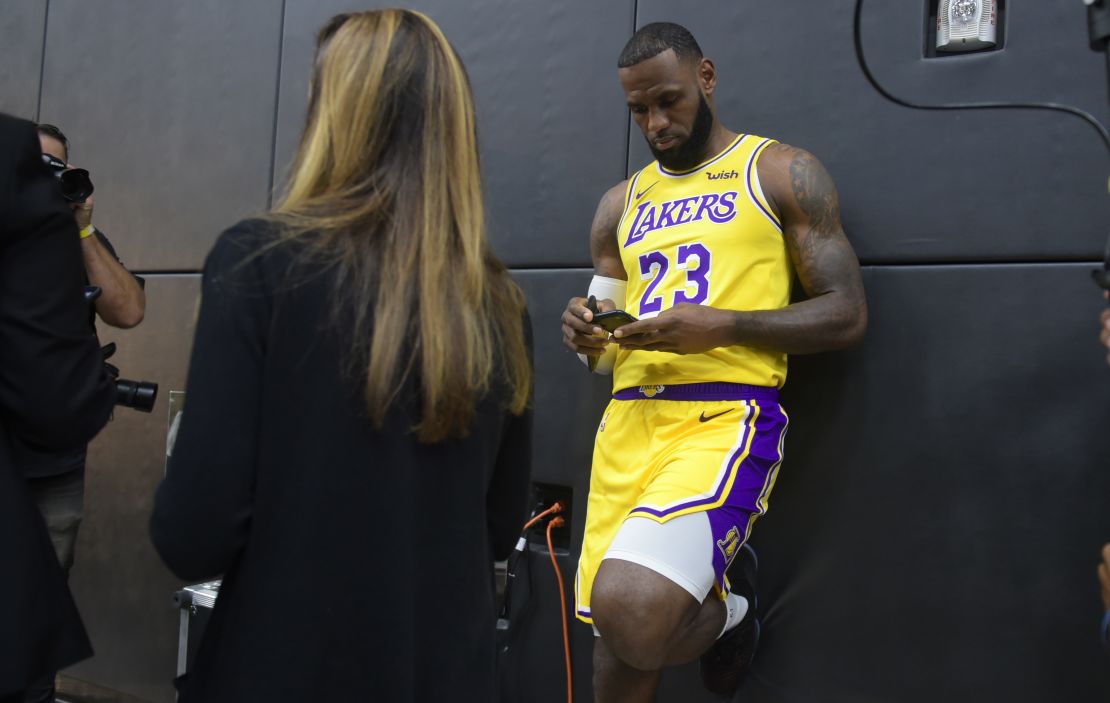Scroll, swipe, like. Scroll, tweet, post.
The repetitive nature of social media can be relaxing for some, but for others, notably athletes, it can be an unwelcome distraction.
NBA commissioner Adam Silver is one of those that believes social media is doing more harm than good.
“I think we live a bit in the age of anxiety,” said Silver during the MIT Sloan Sports Analytics Conference in March.
“I think part of it is a direct product of social media. I think those players we’re talking about, what strikes me when I meet them, they’re truly unhappy. This is not some show they’re putting on … a lot of these young men are genuinely unhappy.”
Dr. Tiffany Jones, a mental performance consultant who has worked with championship teams across ice hockey, soccer and college basketball, says it speaks to a larger issue while in conversation with former NFL star and CNN anchor Coy Wire.
“They’re the most communicative generation of all time but they’re also now the loneliest athletes of all time because there’s a difference between communication and conversation,” says Jones. “Conversations are where relationships are formed.”
Visit CNN.com/sport for more news, features and videos

Kliff Kingsbury, the head coach of NFL side Arizona Cardinals, recently mandated “cell phone breaks” to browse social media during team meetings. It was created as a way to help those players who may lose focus during meetings itching to get back on their mobile device.
Jones, however, doesn’t think this is the proper solution for elite athletes.
“They love their cell phones, fine, but not after 20 minutes of a meeting because that’s not going to match what they have to do when they go out in the field,” she says.
“They’re not going to be able to take 20-minute breaks when they’re playing football or when they’re on the basketball court, they’re going to learn have to learn how to focus. And it’s an addiction, and with any kind of addiction we got to wean them off a little bit.”
READ: The artist using James Harden’s beard as inspiration
And she would know. In her role with the United States under-20 women’s football team in 2008 which featured star forward Alex Morgan, Jones worked with the head coach, the late Tony DiCicco, on a way to limit cell phone usage.
“We collected cell phones at 7 o’clock night every night because we were finding that [players] were not connecting and all of a sudden they started to break through the uncomfortable.”
Jones considers the “uncomfortable” the moment when real, vulnerable, personal breakthroughs can happen.
READ: How the Patriots had a ‘monumental’ year in China
“I can now hold you accountable because I trust you and I trust your heart and I know when you’re telling me something it’s to get the best out of me,” says Jones.
“These are all the great things that happen when you put down the cell phone.”
Watch the video at the top of the page to see more about this side of social media.

